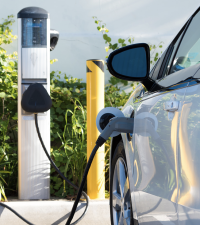Starting in January Inflation Reduction Act Provision Will Allow Consumers to Transfer Credit to Car Dealer, Reducing Purchase Price of New and Previously Owned Clean Vehicles at Time of Sale.
“When a buyer chooses to transfer the credit, registered dealers will reduce the purchase price of the vehicle or provide cash to the buyer. The amount provided must equal the full amount of the credit available for the eligible vehicle. When completing the sale, the dealer will electronically submit information regarding the transfer, including a time of sale report, to receive an advance payment for the value of the credit. The IRS expects to issue advance payments within 72 hours. “
NEWS: The U.S. Treasury Department today issued new guidance on how a $7,500 EV tax credit can be used as a point-of-sale rebate starting in January.
— Sawyer Merritt (@SawyerMerritt) October 6, 2023
Starting Jan. 1, consumers can transfer the credits to a car dealer, effectively lowering the vehicle’s purchase price:… pic.twitter.com/3nLheQvHnp
Transcript: The U.S. Treasury Department today issued new guidance on how a $7,500 EV tax credit can be used as a point-of-sale rebate starting in January.
Starting Jan. 1, consumers can transfer the credits to a car dealer, effectively lowering the vehicle’s purchase price: “Consumers can choose to transfer their new clean vehicle credit of up to $7,500 and their previously owned clean vehicle credit of up to $4,000 to a car dealer starting January 1, 2024. This will effectively lower the vehicle’s purchase price by providing consumers with an upfront down payment on their clean vehicle at the point of sale, rather than having to wait to claim their credit on their tax return the next year. Only vehicles purchased under the consumer clean vehicle credits are eligible for this benefit.”
Under the guidance issued Friday, consumers will need to attest they meet income limits to qualify for the tax credit or they will need to repay the government when filing their taxes.
Dealers will need to register via a new IRS website to offer the credits. Beginning in January, dealers can submit vehicle sales to the IRS and receive payment for tax credits within 72 hours. Under proposed rules released Friday, credit transfers and advance payments would typically not affect dealers’ tax liability and dealer payments would not be part of a consumer’s gross income.
